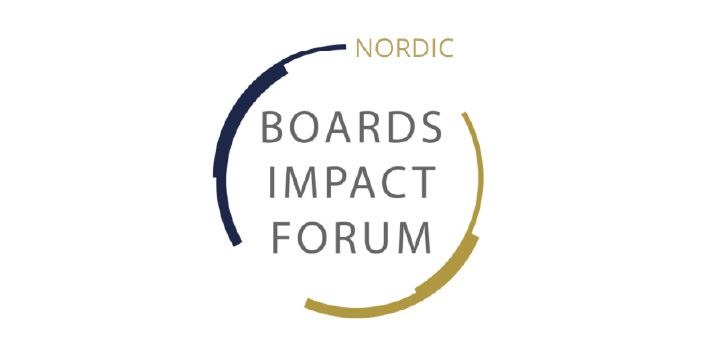Date: 22 March 2021

Host:
Boards Impact Forum
Panellists:
- Professor Stanislav Shekshnia, INSEAD, Senior Partner, Ward Howell
- Asthildur Otharsdottir, Chair Marel, Frumtak Ventures, Board Member University of Iceland
- Jan Wareby, Chair RISE, NED at EKN, Tobii, Gapwaves, Imsys Technologies, Defentry, Scandinaviant Stor Technologes, Agapi Boating
- Jakob Stengel, Chair Danish Board Network, Managing Partner Case Rose/Intersearch
- Pia Gideon, Chair Klovern, Qlucore, ActionAid, NED Apoteket, Metria
Moderator:
Liselotte Engstam, Chair at Boards Impact Forum, FCG Group, NED at TietoEvry, Zalaris, Transtema, S-Group, IMIT, IDN
Board chairs face a unique paradox: they have limited formal powers but the impact they have over their boards and companies is tremendous. How can boards be empowered to become facilitators of climate action within their companies?
The third panel discussion leading up to the CGI’s Global Summit in Spring 2021 explored the idea of board chairs as the key players in setting the sustainability strategy. Presented by Professor Stanislav Shekshnia, the panel looked at what board leaders can do in creating sustainable value within their companies, and increasing climate accountability on boards.
For the past seven years, Professor Shekshnia has been conducting research into the ways chairs can assert influence. He has determined three main ways that chairs can assert influence, including setting the mindset, education and action agenda on boards, and ensuring board member views are represented to shareholders and CEOs.
When looking at the role chairs can play in pushing sustainability, the panel found the overall mission of the board must also be considered. Prof Shekshnia’s research asked boards to explain their purposes, and one quote he shared from a board member sums up what a climate-forward agenda might look like: “We work to make sure this company outlasts all of us and we are never ashamed to admit that we are its directors.”
The panel argued that the Nordic countries are world leaders when it comes to integrating sustainability into business strategy. The Research Institute of Sweden (RISE) was given as a particular example of good practice: its board has three education days a year, dedicated to exploring sustainability and how it affects business in specific areas. From those investigations, it’s then able to determine which areas should be engaged with, and how to maintain ‘good business’ going forward.
As life seems to move ever-more online, one can’t ignore the fact that the board chair role has been largely digitalised. What impact does that have on their ability to move forward with prioritising sustainability? Fundamentally, the panel argued that chairs have to be able to move with the times while inspiring, measuring and being an example of good practice in their companies. The session concluded that, given how fluent many Nordic chairs are at integrating ESG goals into company strategy to make money in a sustainable way, the region has the potential to inspire boards globally.